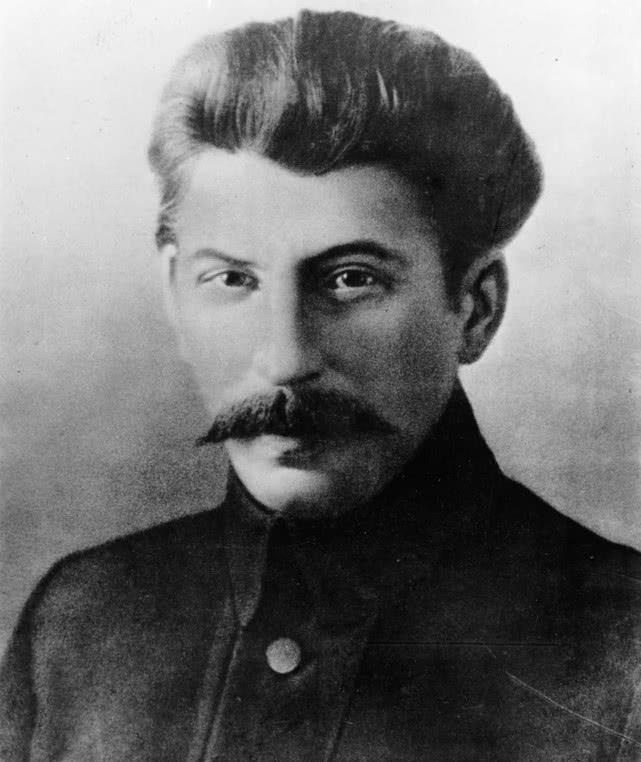How do Russians today evaluate Stalin? What kind of image did Stalin have in their minds?

(Photo of Stalin when he was young)
Stalin's life was very complicated, and he was able to write a thick book, both for his merits and faults.
In terms of merit, Stalin's greatest credit is, of course, that he led the Soviet people to repel the Nazi invaders and successfully defended their homeland. Especially when the German army approached Moscow, Stalin refused to flee, resolutely carried out a military parade on Red Square, and vowed to coexist and die with Moscow. Stalin's actions boosted the morale of the entire Soviet army, which led to the later victories at Stalingrad and Kursk.
And in addition to the performance in the war, Stalin implemented three five-year plans after World War II and established collective farms in various parts of the Soviet Union, so that the Industry and Agriculture of the Soviet Union reached the level of a great power. Even the atomic bomb nuclear button that shocked the world was a result of Stalin's research.
With these merits, Stalin was absolutely worthy of the words Hero of the Soviet Union.
However, while people sang praises for him, Stalin's faults were equally serious. The Great Purge of the 1930s was a wound that the Soviets will never forget. In that horrific purge, millions of people were sentenced and nearly 700,000 shots were killed. And according to incomplete statistics, millions of people in the USSR died as a result of exile or gulag concentration camps.
The Great Purge greatly reduced the national strength of the Soviet Union. But correspondingly, Stalin's personal prestige reached an unprecedented height. During Stalin's cult of personality, portraits of Stalin were hung everywhere in the Soviet Union. In books, articles, and radio programs, it is not possible not to quote Stalin's works or to mention his name many times.
(Stalin, who was admired by the people)
This cult of personality did not change until after his death.
After Stalin's death, Khrushchev became the leader of the Soviet Union. In February 1956, the 20th Congress of the CPSU was convened. Khrushchev, who had become the leader at the time, spent 5 hours at the meeting giving a secret report on the theme of "On the Cult of Personality and Its Consequences".
Khrushchev bitterly condemned the grave crimes of Stalin's Great Purge and attacked his military incompetence in the Battle of Kiev. Finally, he believed that if the Soviet Union wanted to gain better prospects for development, it must completely repudiate Stalinism and return to the path of Leninism.
Khrushchev's ideas caused a storm in the Soviet Union. Countless supporters of Stalin took to the streets and cursed Khrushchev for crossing the river and demolishing the bridge. You know, Khrushchev was the most active supporter of the Great Purge, and his ghosts are unknown. Today, in order to raise his image, he has betrayed Stalin with his backhand, which is undoubtedly a very shameless act.
In fact, in doing so, Khrushchev, in addition to separating himself from the Great Purge, wanted to erase Stalin's supremacy in the hearts of the people. He is not opposed to the cult of personality at all, but just wants to set up a cult of personality for himself.
(Old photo of Khrushchev)
However, because Stalin's majesty was too deeply rooted, Khrushchev's methods did not receive good results. In 1961, Khrushchev took the risk of the world and forcibly removed Stalin's body from Lenin's tomb. It was only when this happened that the Soviet people finally realized that Stalin's time had passed.
The Soviet Union immediately launched a "de-Stalinization" movement. For example, Stalin's statues and buildings have basically been damaged to varying degrees. The cities and roads named after Stalin were also renamed. Stalingrad, for example, was renamed Volgograd.
But this momentum did not last long before Khrushchev stepped down. The newly elected Brezhnev stopped the anti-Stalin momentum by denying Khrushchev. And at the end of his reign, he also began to engage in a cult of personality.
In fact, the leaders of the Soviet Union liked to stabilize themselves in ways that denied their predecessors. As a result, Stalin's influence has never been completely removed.
By recent decades, the victims or families of the Great Purge had largely died. Stalin's prestige began to rise again. In the hearts of the younger generation in Russia today, Stalin is more of a hero who saved the nation from danger, and new statues of Stalin have begun to be built everywhere. In August 2008, the Russian history teaching reference book Russian History 1900-1945 re-evaluated Stalin for "making the right historical choice at a given time."
Also in 2008, Russian state television held a selection campaign for the "Greatest Russians," which ultimately led stalin to third place, behind Alexander Nevsky and Stolypin. After many years, Stalin once again gained the recognition of the people.
(Reference: Biography of Stalin, etc.)